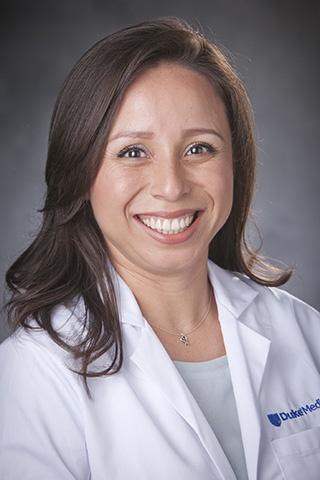Where does all the grief go?
Grief can be a burden, but also an anchor. You get used to the weight, how it holds you in place. — Sarah Dessen
As physicians we are exposed to extraordinary pain and suffering. In the hospital setting we bear witness to debilitating injuries, incurable disease, and death. In an outpatient setting, we deal with many factors that lead to smoldering disease like underfunded mental health services and uncontrolled chronic conditions due to poverty. Sometimes despite our best efforts, our patients and their loved ones suffer tremendous losses, yet somehow we move from day to day, patient to patient with such precise productivity.
Where does all the grief go?
I often find myself asking this question as I reflect on the many patient interactions I have had in my short time as a resident at Duke.
To be the one who reassured the elderly woman who did not want surgery and later died, that it would be OK.
To be the one to tell a mom there is nothing more we can do for her child.
To be the one who interviews the young pregnant woman with a bruised and deformed face due to domestic violence.
To be the one who looks the father of an unborn baby in the eye and say I am not sure why his pregnant partner is sick, even though I know she is abusing alcohol.
To be the one who puts the dialysis catheter in the elderly man who didn’t want dialysis.
Positive thinking isn’t about expecting the best to happen every time, it is about accepting that whatever happens is the best for the moment. — Unknown
I often wonder if I did enough for my patients.
Should I have called the police anyway? Maybe she would have pressed charges if the cops were present.
Should I not have put that catheter in? Maybe I should have convinced the family to honor patient’s wishes rather than give them the option.
Should I have told the father the truth? She is in alcohol withdrawal.
It is often hard to be positive about these scenarios and I feel grief not only for my patient’s suffering and pain, but also for what feels like a missed opportunity to have changed the trajectory of a patient’s life.
We must free ourselves of the hope that the sea will ever rest. We must learn to sail in high winds. — Aristotle Onassis
The fact is that human suffering is a part of life and everyone will experience grief differently. However, as physicians we should strive to create environments where we allow ourselves to process these emotions. Unfortunately, learning how to deal with these emotions during service can be difficult due to the many important tasks that need to be completed for patient care.
However, there are examples that should be the standard for a healthy debriefing. Instead of asking, “Are you OK,” we should ask, “How did the situation make you feel?” Instead of asking if we need a break, we should simply all take a break. Instead of ignoring difficult situations we should delve into them and sail in the high winds.
“It’s not the load that breaks you down, it’s the way you carry it.” — Lou Holtz
I am not sure where my grief goes, but I know that I do not carry it alone. One of highlights of intern year has been meeting amazing residents across different specialties. We share difficult stories and use our grief to anchor ourselves in sound medical decision-making. As second-year residents we will have an increasing amount of responsibilities that may make it harder to keep a balance between our service and our emotional health. I am hopeful that in our time as residents we acknowledge that nothing exists in isolation and that providing excellent patient care does not have to happen at the expense of our well being.
Everlyn Perez is a first-year resident with the Duke Family Medicine Residency Program. Email everlyn.perez@duke.edu with questions.
